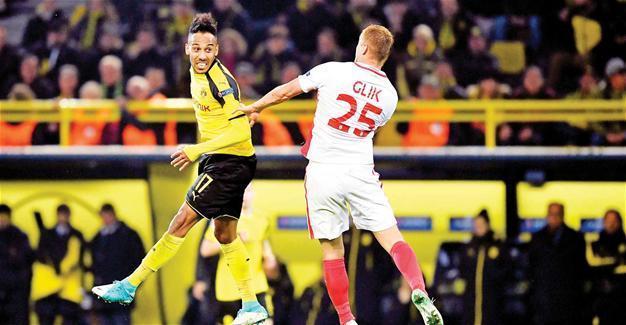Traces of suspects in St Petersburg, Dortmund attacks found in Turkey
ISTANBUL/BERLIN
 The traces of the suspects of the separate bomb attacks in Russia’s St. Petersburg and Germany’s Dortmund have been found in Turkey.
The traces of the suspects of the separate bomb attacks in Russia’s St. Petersburg and Germany’s Dortmund have been found in Turkey. Akbarzhon Jalilov, the man Russian police suspects of blowing up a St. Petersburg metro carriage, entered Turkey in late 2015 and was deported to Russia about a year later because of migration violations, a senior Turkish official told Reuters on April 12.
The April 3 attack killed 14 people, including the bomber himself, and injured dozens more. It took place as Russian President Vladimir Putin - architect of Russia’s military intervention in Syria - was visiting St. Petersburg.
The Turkish official, who spoke on condition of anonymity, said that while in Turkey Jalilov “was deemed suspicious due to some connections he had, but no action was taken as he had not done anything illegal and there was no evidence of wrongdoing.”
“However, the issue was not dropped and this person was sent out of Turkey in December 2016 for violating their visa and residency. In the end, a fine was given and they were deported with an entry ban,” the official said.
After leaving Turkey, Jalilov’s “passage into Russia was easy from here, it seems they [Jalilov] encountered no problems,” the official said.
Meanwhile, the German Federal Prosecutor’s Office said the man, who is identified as Abdul Beset A. and was detained on suspicion of being involved in an attack on a bus carrying players of a Dortmund football team, arrived in Germany via Turkey at the start of 2016, Reuters reported.
Three explosions went off as the Borussia Dortmund bus traveled to the club’s stadium for their Champions League match against AS Monaco on April 11, injuring Spanish defender Marc Bartra and a police man and delaying the fixture by a day.
German prosecutors issued an arrest warrant against the 26-year-old Iraqi man detained following the attack, saying on April 13 that there was no evidence that the man had taken part in the attack but they believed he was a member of the Islamic State of Iraq and the Levant (ISIL).
The suspect was set to appear before a judge who would decide whether to approve the arrest warrant issued by prosecutors, which would allow the man to be held for longer than 24 hours.
“The investigations have so far resulted in no evidence that the suspect had taken part in the attack,” the prosecutor’s office said in a statement.
It added that the man was a member of ISIL in Iraq, where he led a 10-strong commando unit that was involved in kidnappings, smuggling, extortion and killings. The jihadist group controls parts of Iraq and Syria.
The quarter-final, first leg match was held in Dortmund 24 hours later in a packed stadium with tight security, with Monaco winning 3-2.
Dortmund coach Thomas Tuchel angrily accused UEFA of treating the bomb attack as if a “beer can” had been thrown and claimed they were informed by text message that they would have to play their Champions League game.
After Borussia Dortmund’s fans opened their doors to Monaco rivals stranded by a bomb attack that postponed their match, the visitors returned the solidarity gesture on April 12 decked out in the German squad’s black and yellow.
All day Monaco fans piled into the German club’s boutique, snapping up Dortmund gear before kick-off.
“We’ve sold hundreds of scarves and jerseys since this morning, and it’s almost only the French who’ve been buying,” said Sultan Karakas, who was manning the boutique’s till.
















